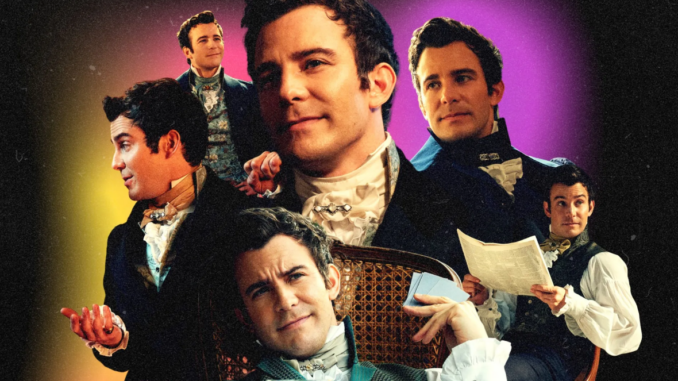
Why Benedict Is Actually the Best Bridgerton
Although the third and latest season of Bridgerton is, for all intents and purposes, about the budding romance between old friends Colin Bridgerton and Penelope Featherington, let it also serve as confirmation that the best Bridgerton in the upper echelons is Benedict.
In the Bridgerton universe, Benedict, the handsome and kind second son of the Bridgerton family, is actually Prince Harry to Prince William to Anthony, the “heir” to the heir. When it comes to the laws of succession, he’s clearly less important than his brother. But if you consider their qualities from a different angle—which Bridgerton do you actually want to spend time with—Benedict is the clear winner.
Read More: Breaking Down the Bridgerton Family Tree
Never mind that the show has so far focused largely on his siblings’ forbidden romances, near-scandals, and dramatic emotional traumas. Throughout the series, Benedict has consistently (though quietly) shown himself to be a loyal friend, an empathetic listener with an open mind, a sports enthusiast and a giving soul, and the emotional rock of his family—no easy feat when you’re one of eight siblings!

In the first part of the new season, now streaming on Netflix, we learn that Benedict (played by Luke Thompson) has been successfully running the Bridgerton estate while Anthony is on his honeymoon and Colin is abroad. It’s a responsibility he balances well with supporting his family, especially Eloise, who has long relied on him as a confidant. All this hard work doesn’t mean Benedict is missing out on the fun—quite the opposite; this season, he embarks on a passionate romance with a charming older woman, the widowed Lady Tilley Arnold. All of which should serve as a reminder that while there have been more dramatic Bridgertons on the show, Benedict has quietly proven himself to be the best brother, son, friend, and lover on the show, time and time again.
With that in mind, we’ve rounded up five reasons why Benedict is definitely the best Bridgerton.
Benedict is present
Of all the Bridgertons, Benedict is perhaps the most dependable sibling. Anthony is busy with his duties as Viscount and patriarch of the family; later, when he married Kate, the couple honeymooned not once but twice, leaving Benedict to take charge and run the estate while they were away. Colin seems to be constantly traveling abroad to “find himself.” Francesca spent most of the series living in Bath studying piano forte, and Daphne, after a riveting first season that culminated in her marriage to the Duke of Hastings, has largely disappeared from Bridgerton family life. Benedict, on the other hand, is always available for a game of pall-mall or a late-night chat, like the ones he always had with Eloise. If you’re going to have an urgent contact with the Bridgertons, make it Benedict.
Benedict is a free spirit
Of all the Bridgerton siblings, even Colin, who loves to travel the world, Benedict is the most open to new and different experiences. Over the course of three seasons, we’ve seen Benedict explore his creative side and attend art school, experiment with psychedelics, and explore his sexuality. Despite his upper-class upbringing, Benedict is, at heart, a free spirit and a free spirit. Benedict keeps an open and curious mind as his art mentor, for whom he has a slight crush, explains his open marriage to a woman, even though he is in love with a man. And emotionally, he is not obsessed with convention—from pursuing a life model who works at his art school to embarking on a whirlwind affair with an upper-class widow, Benedict simply follows his heart.
Benedict is a creative person
Benedict’s ambitions as an artist are evident throughout the show. While he could easily settle for just being a gentleman and living a life of leisure, he is truly committed to his craft as an artist, even going so far as to apply to the Royal Academy of Arts. Once accepted into the academy, Benedict devotes himself to honing his skills. Though he eventually dropped out early after discovering that Anthony had donated a large sum of money to the school to secure his place in the class, it became clear that Benedict’s time as an artist would not be defined by institutional connections; it was at the core of who he was.
